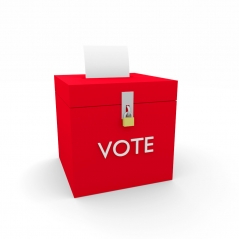Are Perceptions of Election “Rigging” Racialized?
Critics of voter-ID legislation have especially zeroed in on the latter concern, arguing that the laws are a racially-motivated form of vote suppression. Though partisan motivations undoubtedly played a role in the rush to pass voter-ID laws—they have typically been sponsored by Republican legislators, and their burdens fall disproportionately on groups that tend to vote Democratic—both recent court decisions and social-science research (Bentele & O’Brien, 2014) have found evidence that concerns about checking the power of Black voters figure into the push to tighten voter requirements. Indeed, some Republican officials have gone so far as to admit that they were targeting African-American voters, rather than seeking to fight voter fraud more generally. More importantly from our perspective as political psychologists, studies also suggest that support for efforts to protect the “integrity” of the vote may be rooted in racial animus in the general public. For example, political scientists David Wilson and Paul Brewer (2013) found that feelings of resentment toward African Americans are one of the strongest predictors of support for stricter voter-ID laws, even after controlling for factors like partisanship and ideology.
So, there is some evidence that opinions about policies aimed at preventing alleged voter fraud have a partial basis in racial animus. But what about perceptions of the fairness of elections in general? Like attitudes toward voter ID, we argue that these perceptions have become racialized. The reason for this is that the outcomes of the last two presidential elections are intimately tied to the most visible symbol of the demographic and cultural changes currently upsetting the traditional racial order in America: President Obama. Our claim is that the election (and re-election) of the nation’s first African American president has increased the salience of race in the context of elections, leading White Americans to make judgments about the fairness of recent electoral contests partly on the basis of their racial attitudes.
Indeed, racialized judgments of this sort have become a hallmark of the current political era. Not surprisingly, Whites who harbor negative feelings about African Americans also tend to especially dislike Obama, even compared to other similarly-liberal Democratic political figures. In turn, this racialized dislike of Obama has “spilled over” to policy positions that have become linked to the president in the public mind. Consistent with this story, political psychologist Michael Tesler (2016; see also Knowles, Lowery, & Schaumberg, 2010) found that hostility toward African Americans became a strong predictor of attitudes toward economic- stimulus spending and health-care reform after Obama’s ascent to the presidency, despite having little or no relationship with opinions about either of these topics prior to the 2008 election. Although this pattern extends to judgments as benign as opinions about the Obama family’s dog, Bo, our evidence suggests that it extends to attitudes as important as the integrity of national elections.
To test our hypothesis that perceptions of electoral fairness have become similarly racialized, we used data from over 9,000 White respondents who participated in the 2008 Cooperative Campaign Analysis Project. To get a measure of how fair respondents thought the election was, we looked at answers to a question asked in the weeks after Election Day:
“In some countries, people believe their elections are conducted fairly. In other countries, people believe that their elections are conducted unfairly. Thinking of the presidential election we’ve just had, do you believe it was very fair, somewhat fair, neither fair nor unfair, somewhat unfair, or very unfair?”
 Ballot boxes - the backbone of democracy - should be secured at all cost
Ballot boxes - the backbone of democracy - should be secured at all cost


